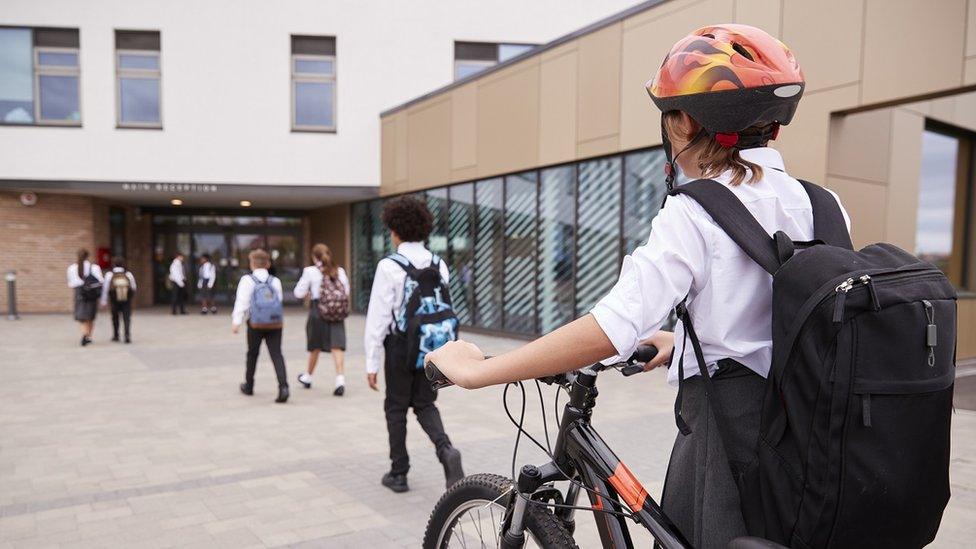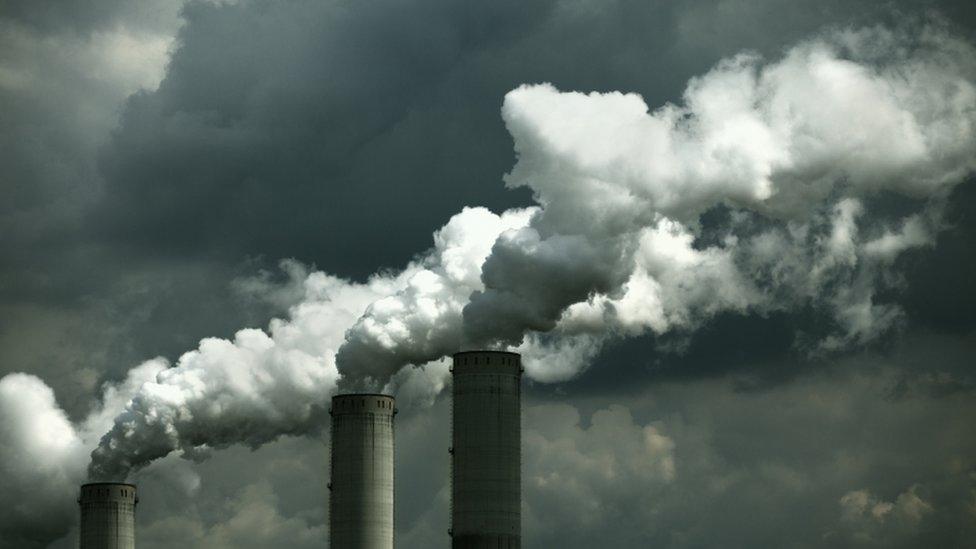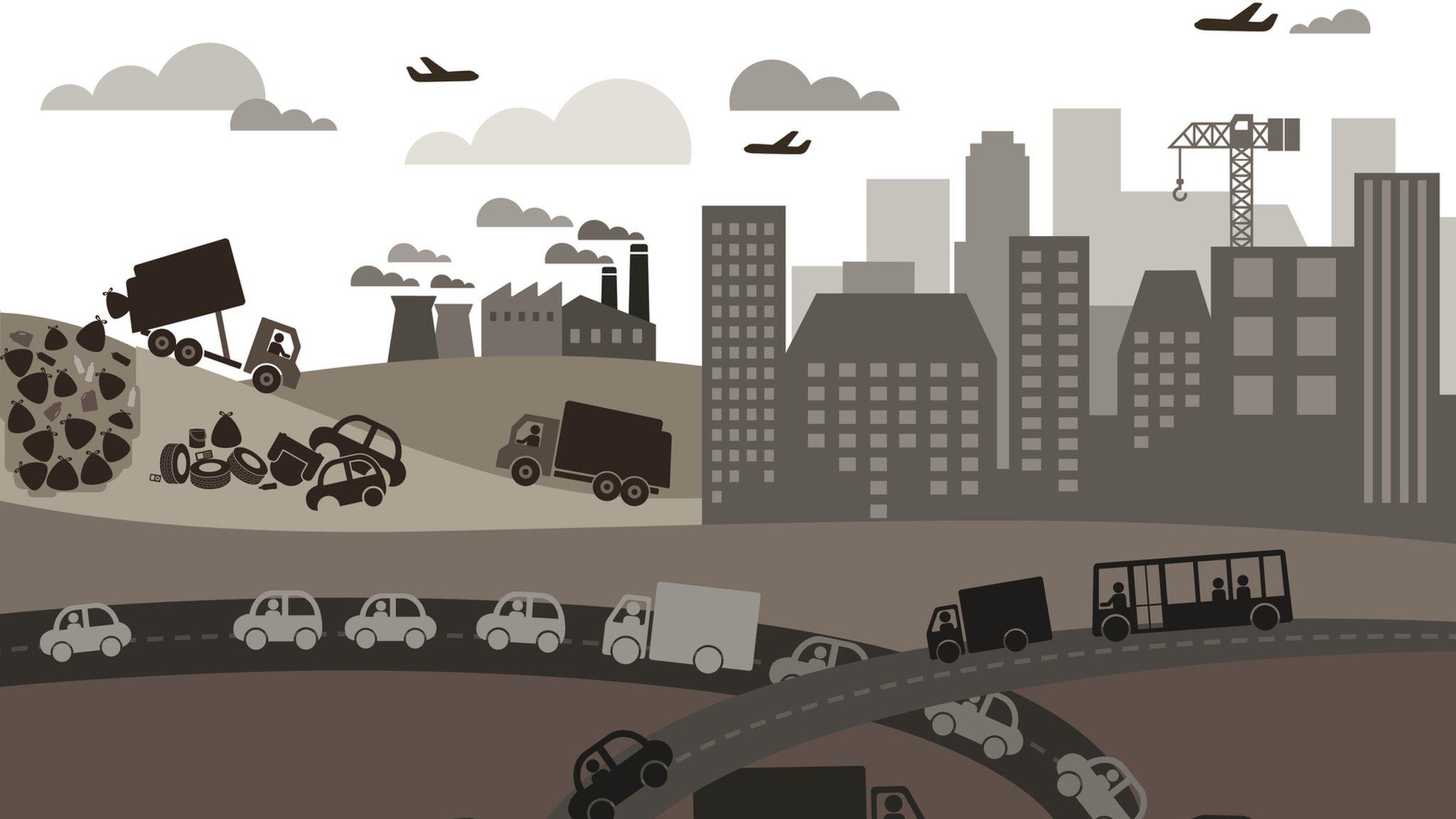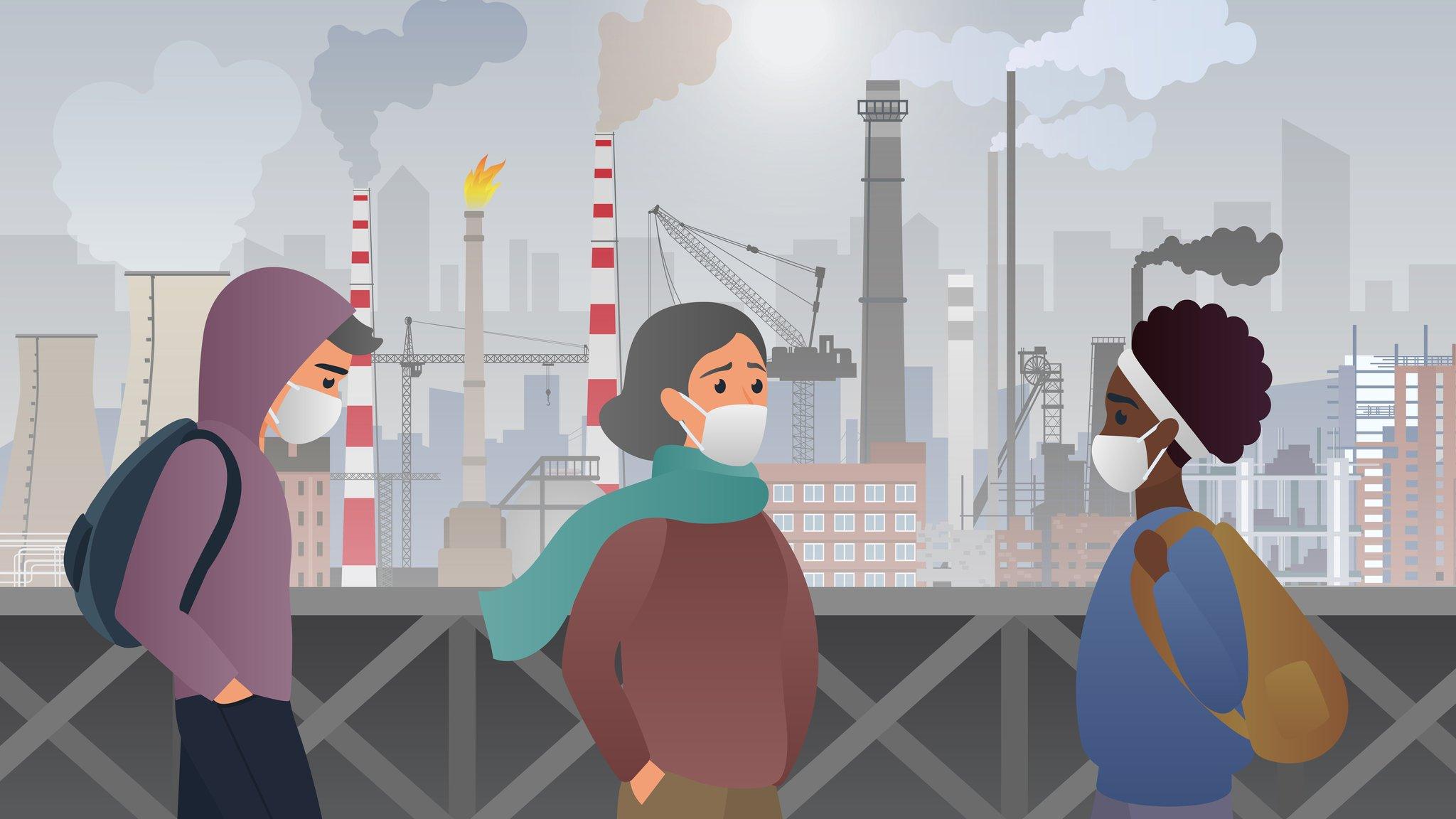Air pollution: How a school in Manchester is fighting back against air pollution
- Published
- comments
Air pollution: "You can smell and taste it"
Students at a school in Manchester are fighting back against air pollution.
Across the UK, around 6,500 schools are in areas where air pollution levels are high.
One of them, St Ambrose RC primary school in Manchester, sits next to one of Europe's busiest roads, where air pollution levels are around five times higher than the World Health Organisation (WHO) safe limits.
Some pupils at the school who have breathing difficulties, like asthma, have said that the air pollution levels can make them feel worse: "It makes me feel out of breath. It affects me with my asthma and it makes me cough more. I do have to take my asthma inhaler a lot" said one pupil.
Students at the school have been writing to their local MP and Mayor to help look for solutions on how to reduce the amount of air pollution near their school.
What is air pollution?
What's air pollution and why's it so important?
Air pollution is a term that describes the harmful gases and particles in the air. We can't always see these substances as many are invisible to the human eye, but they affect the quality of the air around us and this can be very damaging to both human health and the environment.
Vehicles including cars, buses, trucks and motorcycles all emit air pollutants. They can also be given off by planes and trains and at factories and power plants where fossil fuels like coal, oil and gas are burned.
Cigarette smoke, the burning of wood for heating and cooking, and farming all contribute to air pollution too.
Common air pollutants include:
sulphur dioxide
nitrogen dioxide
carbon monoxide
ozone
Pollution can be measured in different ways, but the World Health Organization (WHO) use a scientific measurement called PM 2.5.
This measures the amount of pollution particles in the air which can be breathed in.
They recommend that 10 micrograms is a safe amount in a year.
But the UK currently has a yearly average of around 25 micrograms for PM 2.5 particles.
What is being done to help?

Organisations like Clean Air Greater Manchester encourage children to cycle to school to help reduce air pollution levels
A group of scientists from Lancaster University have tried to help pupils at St Ambrose RC primary school by planting a wall of trees between the school and the road, which can help to capture some of the pollution particles.
In 2019, the government launched their Clean Air Strategy, which aims to introduce laws to stop the sale of the most polluting fuels and the education of people and businesses on what they can do to help reduce levels of air pollution.
There are also many organisations and campaigns taking action to reduce air pollution levels in the UK like Clean Air Greater Manchester, Healthy Air, the British Lung Foundation and Friends of the Earth.
If you can't see this vote, click here.
- Published8 October 2020

- Published7 February 2019

- Published30 April 2020

